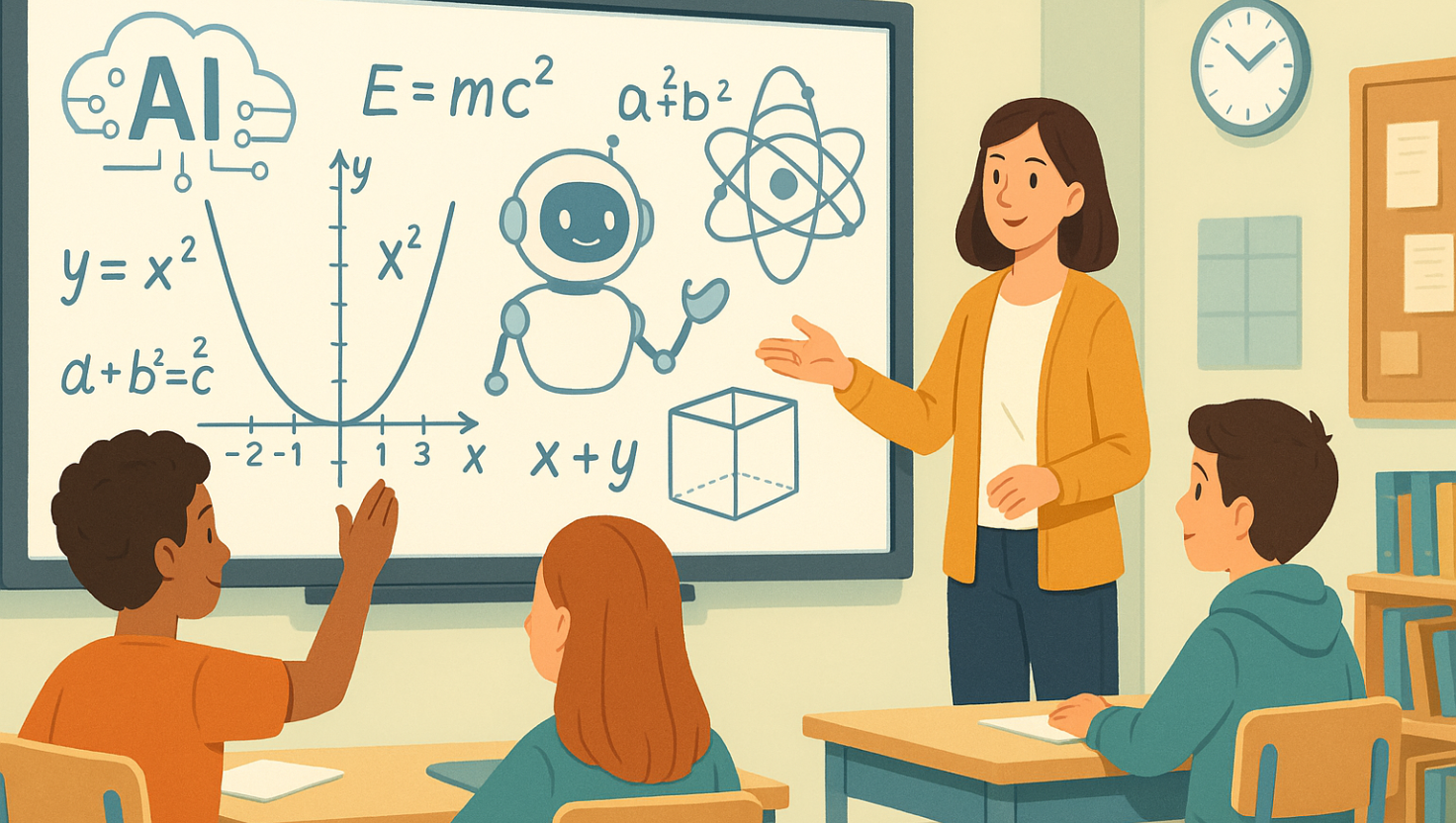AI Learning Platforms to Practice Math and Science at Your Own Tempo
With the era of digital learning, artificial intelligence (AI) is transforming the way learning core subjects such as math and science takes place. No more traditional textbooks and fixed class timings. Now, AI-powered learning platforms offer interactive, customized, and self-paced learning experiences that suit each learner's strengths and weaknesses.
Let's observe how AI tech is revolutionizing math and science education — with some fascinating facts and research figures to support it.
The Emergence of AI in Education
AI is quickly making its presence felt in educational technology (EdTech), particularly in STEM (Science, Technology, Engineering, and Math) courses. Here's what recent research indicates:
The worldwide AI-powered EdTech market will be worth more than $80 billion in 2030, driven by growing demand for personalized and scalable learning solutions, HolonIQ says.
AI-powered tutoring platforms can enhance math problem-solving abilities by up to 32% and science understanding by 28% in secondary and high school students, a UNESCO report published in 2023 has discovered.
A study by EdWeek Research Center found that 64% of educators think AI tools enable students to learn challenging STEM subjects at their own pace better than the traditional classroom approach.
How AI Tools Support Math and Science Learning
Adaptive Learning Platforms
AI-powered learning environments automatically adjust the level of difficulty for practice exercises according to the performance of learners. They monitor progress in real-time and provide individualized practice exercises that specifically deal with each learner's difficulty areas.
Instant Feedback and Error Analysis
Most AI-powered math software provides instant feedback on erroneous questions with highlighted errors and solutions in step-by-step fashion. This develops active learning and enables learners to learn from mistakes in real-time.
Concept Reinforcement and Revision
Spaced repetition and customized quizzes are used most frequently by AI software to re-enforce key math and science concepts. This approach maximizes long-term recall of challenging formulas, theories, and procedures.
Interactive Simulations and Experiments
AI-powered science apps have virtual labs and simulations wherein students can conduct experiments with physics principles, chemical reactions, or biological processes without any risk associated with a virtual lab.
Best Math and Science Practice Apps Powered by AI
Some of the finest AI-powered apps that are causing a stir in the learning of math and science include:
Photomath: An app based on artificial intelligence through which students need to scan printed or handwritten math problems to have them solved instantly, along with step-by-step explanations.
Khan Academy Kids and Khan Academy Math: Employ AI to make learning more personalized for students on mathematics and science subjects, modifying challenges based on progress.
Labster: Virtual lab platform providing AI-facilitated simulations of biology, chemistry, and physics lab experiments, currently used by more than 3,000 schools and universities around the world.
Carnegie Learning: Adaptive mathematics education system based on AI that offers customized instruction and feedback to middle school and high school students.
Quillionz: Teacher AI-based tool utilized to create customized quizzes and tests for science and mathematics practice.
How AI Tools Enhance Self-Paced STEM Learning
Not only are AI technologies more interactive for learning STEM, but they also enable learners to take charge of the learning pace. Here is how:
Increased Engagement: Brookings Institution surveyed and found that AI-driven learning tools engaged STEM students 23% more.
Better Retention: Students using AI-driven practice applications had 15-25% improved retention of mathematics and science content after three months compared to traditional approaches.
Accessibility and Inclusivity: AI provides learning materials to distant, disadvantaged, and differently-abled students, bridging knowledge divides.
Final Thoughts
AI-driven technologies are transforming the practice and study of science and mathematics. With adaptive, interactive, and personalized learning pathways, these technologies allow students to learn challenging topics at their own pace. The proof is evident: AI-driven education increases interest, understanding, and memory retention — a glimpse of a future where all learners can study in a manner precisely suited to their individualized needs.
With increasingly sophisticated AI technology, discover more advanced software and virtual classroom spaces that instruct as well as stimulate inquiry and further knowledge of math and science.
